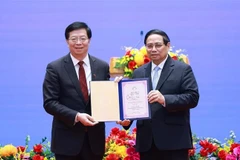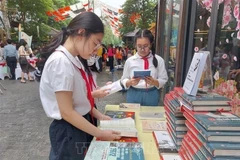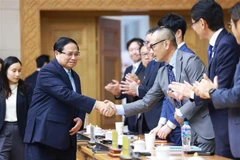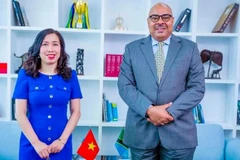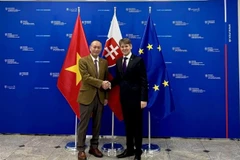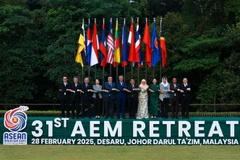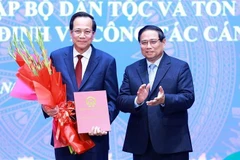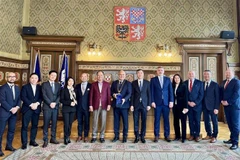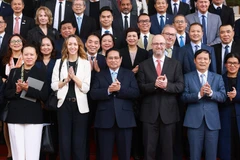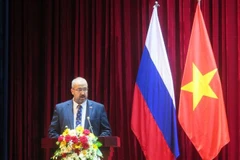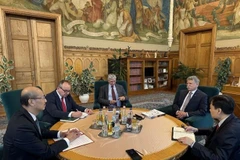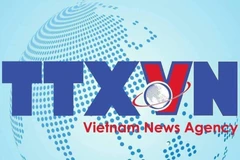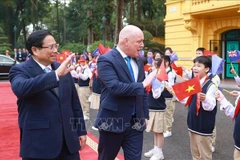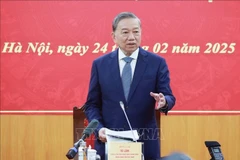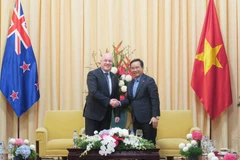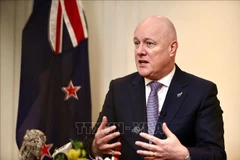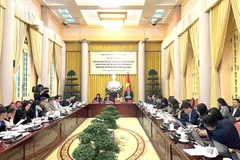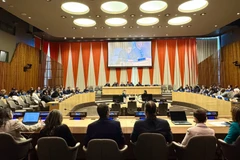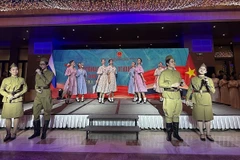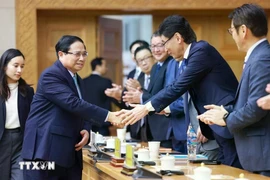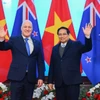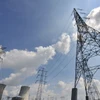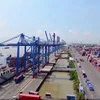The policy also has its roots in the nation’s thousand-year-oldhistoric and cultural traditions and the Vietnamese people’saspirations, the minister said at the 22 nd meeting of the UnitedNations Human Rights Council in Geneva on February 25.
FM Minh underlined the country’s policies and laws designed to protecthuman rights, as well as its achievements, especially in economicgrowth, poverty reduction, which contribute to ensuring the people’sfundamental rights in all fields.
He affirmed Vietnam ’s intention to make more contributions to international cooperation in the field.
“Vietnam is a party to most human rights international treaties andimplemented the agreed recommendations received during the first cycleof the Universal Periodic Review. Bilateral dialogues regarding humanrights have also been extended with many countries,” he said.
“Vietnam is still a developing country striving to build a State ruledby law. Therefore, it has to deal with many challenges in the field ofhuman rights and is poised to work even harder in order to protectpeople’s economic, social, civil, and political rights,” he added.
Minh further emphasised that the country’s candidacy for the HumanRights Council for the term 2014-2016 shows its commitment to active,constructive and responsible participation in the work of the Council.
The minister expressed his concern that although unprecedented progresshas been realised in the field of human rights over the last decades,formidable challenges remained in all corners of the world. Poverty,malnutrition, epidemics, illiteracy, and environmental degradationcontinue to take their toll, first and foremost on women, children,persons with disabilities, the poor, the elderly, migrants, andminority groups, he said.
He called for efforts toseek political methods to end violence, and stressed the topresponsibilities of protecting human rights of concerning countries.
At the same time, he noted that over the last seven years, the HumanRights Council has been an effective mechanism to protect and promotehuman rights around the world, by adopting a holistic and balancedapproach towards all human rights.
He said within theASEAN framework, efforts has been carried out to promote human rightscooperation, particularly through the creation of the IntergovernmentalCommission on Human Rights and the Declaration on Human Rights, whichwas adopted last November.
The UN Human RightsCouncil’s three-day meeting has drawn the participation of high-rankingdelegates from 76 countries, including 1 president, 2 vice presidents,1 prime minister, 8 deputy prime ministers, 43 ministers, 3 secretariesof state and 17 deputy ministers.-VNA
